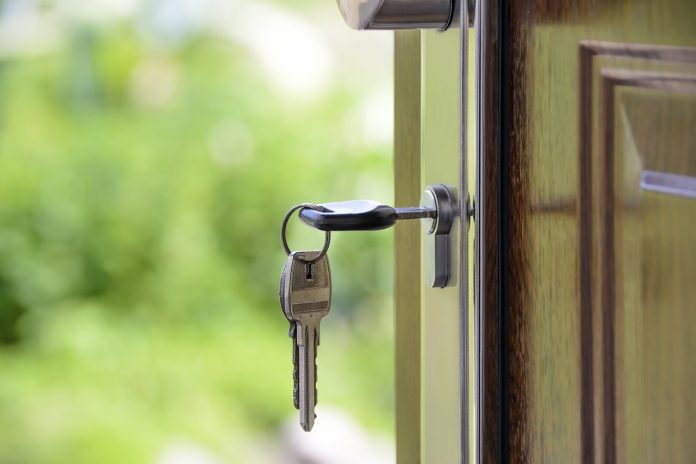Renting a property is associated with an exciting and positive experience, providing a comfortable place you can now call home. In the beginning, you will be excited about the new chapter of your life and will work towards building a good relationship with your landlord.
To keep that positive tone throughout the entire journey, it is vital that you know that conflicts may sometimes arise, disrupting the harmony that you initially enjoyed.
Knowing how to handle those conflicts properly may allow you to further your stay and increase the positive experience of the new place.
What causes conflicts between landlords and tenants
Several factors can contribute to disputes between landlords and tenants.
The most common reasons for disagreements are:
- Repairs and Property Maintenance. One of the main concerns regarding leases. It can include delays in addressing requests, who is responsible for certain property repairs and maintenance, or whether the quality of the ones conducted is sufficient.
- Rental Payments. More often than not, tenants and landlords do not see eye to eye when the time for payment comes. This includes issues with the total amount of owed rent, late fees, or what payment method will be used to complete the transaction.
- Lease Terms and Conditions. Different interpretations of the lease terms may lead to severe conflicts between all parties involved.
- Privacy and Property Access. Quite often, tenants may feel like their privacy is violated, especially in cases where the landlord still attempts to use their rented property freely. Unauthorised entry, invasion of privacy during the end of tenancy inspections, or disputes over the right to access may often results in serious conflicts.
- End of Tenancy Cleaning. It is not uncommon for tenants to find that the property’s condition is not up to standard when moving in and may require some initial cleaning. It is important to note, however, that the end of tenancy cleaning, in most cases, is the tenants’ responsibility, and they may even be obligated to employ professional cleaning services.
Understand your rights and responsibilities
To handle any disputes and disagreements with your landlord, it’s crucial to know your rights and responsibilities as a tenant really well.
Ensure you read and understand your lease agreement, local rent laws, and regulations governing tenant-landlord relationships. Being familiar with your rights does not mean you will need or use them, but it will allow you to assert them if necessary.
In addition to getting familiar with the matter, it is always a great idea to seek guidance from local advocacy organisations or legal professionals specialising in rental property law. They will not only be able to provide you with case-specific information but will provide you with advice on how best to handle any form of dispute with your landlord.
Remember that when dealing with conflicts, understanding your rights and responsibilities empowers you to handle the situation confidently and make the best out of any case.
How to handle landlord conflicts when they happen
Of course, knowing what your responsibilities and rights as a tenant are, does not mean you will be able to handle any type of conflict properly. Knowing something is important, but applying that knowledge is another matter. If you ever find yourself having a dispute with your landlord, ensure that you follow the three important steps.
Talk openly
When it comes to resolving a conflict, communication is vital. Try to initiate a calm and open conversation with the other party and address the issue.
Clearly communicate your concerns, listen actively to your landlord or their representative, and do your best to find a solution that benefits both of you.
Always strive for a respectful dialogue and avoid any confrontational or aggressive language.
Document the discussion
Many things are said and rarely remembered in the same way and context during a conversation.
To avoid escalating the situation further, document all details of your discussion with your landlord. Taking notes of the main points of discussion, any reached agreements, and promises made by both parties will be priceless if further action is required.
Follow up
After you have reached an agreement, ensure that you regularly follow up on the discussion. Any commitments promised by the landlord should be promptly actioned.
Sending an email or a letter as a reminder could go a long way to achieving the desired results and keeping the other party accountable for their promises.
Take legal action if necessary
Despite your best efforts, sometimes an agreement is simply not on the table. Taking legal action against your landlord is one way to proceed when an understanding cannot be reached.
You should know that filing a lawsuit against the homeowner should be initiated in accordance with the applicable laws and procedures in your jurisdiction.
Even if you are familiar with the rules and regulations, consulting with a lawyer is vital to the positive outcome of the situation.
A professional specialising in landlord-tenant law will help you build and file your case, assess potential legal remedies, and help you understand the merits of the lawsuit.
What to do if you’re evicted because of landlord conflict
It’s essential to have a proper understanding of the situation should you face eviction due to a dispute with your landlord.
The first step is to request written notice from your landlord or his representatives. You should ask for the reason that led to the eviction to be specifically mentioned there. Once you have that, you have to understand your rights and seek legal advice promptly.
Reach out to a tenant rights organisation or a local lawyer to assess the legality of the eviction and look into potential defences or even counteractions.
You should know that time is of the essence in such situations, so you should handle the problem swiftly.
Conclusion
While there are many laws nowadays that protect tenants and their well-being, it is always vital to know how to act in a given situation.
Even if you are prepared to handle a dispute, ensure that you always have open and respectful communication with your landlord, as the best way to handle conflicts with them is by avoiding them altogether in the first place.







